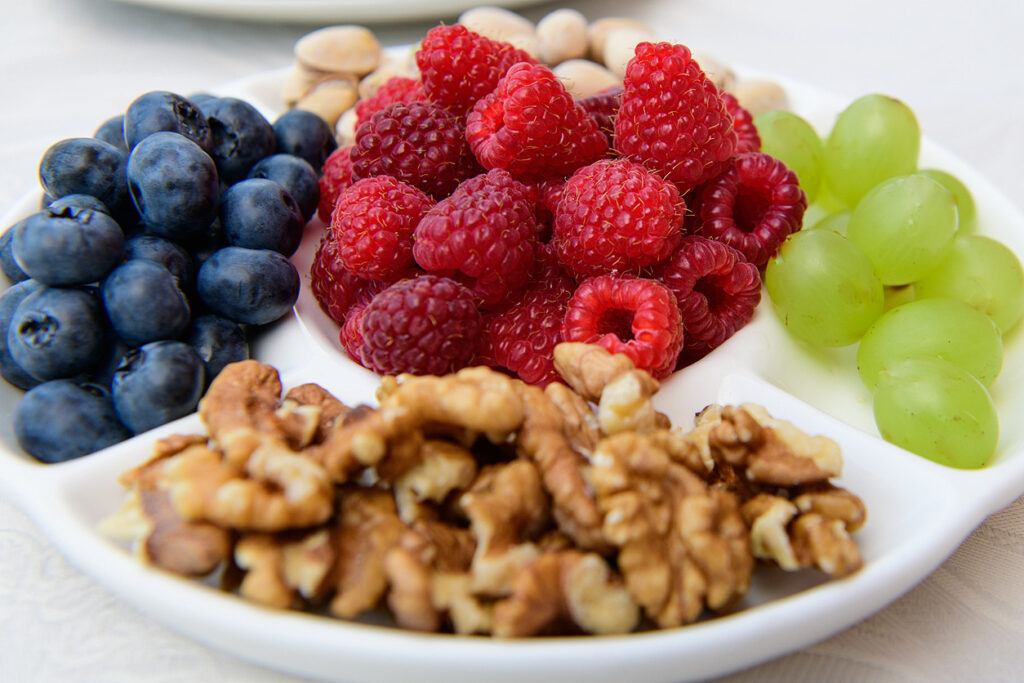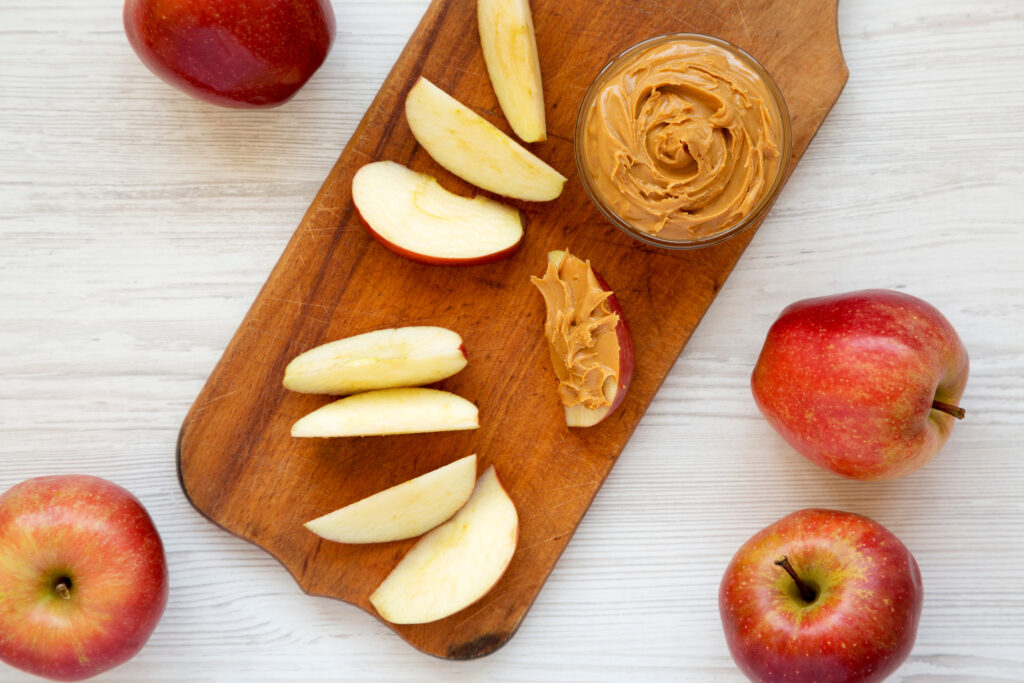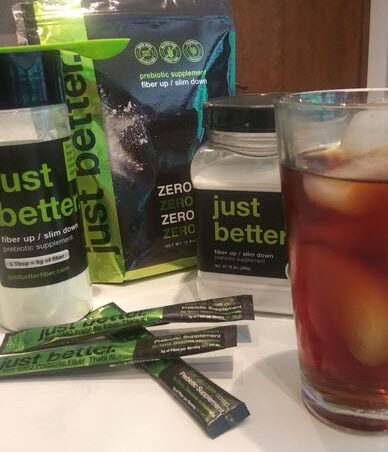A Comprehensive Guide on the Benefits of Eating Foods Rich in Soluble and Insoluble Fibers
First and most important, your body NEEDS both soluble and insoluble fiber.
Both fibers are essential components of a healthy diet. They play vital roles in maintaining overall well-being. Fiber is broadly classified into two types: soluble and insoluble fiber. Each type offers unique health benefits and is found in different foods.
Why Our Bodies Need Fiber

Fiber is crucial for digestive health. It helps regulate bowel movements, prevent constipation, and maintain a healthy digestive tract. Additionally, fiber aids in weight management, reduces cholesterol levels, and stabilizes blood sugar levels.
It’s also linked to a reduced risk of several chronic diseases, including
- heart disease
- diabetes
- certain types of cancer
not to mention it reduces…. - gut problems
- digestive issues
- chronic constipation
- high cholesterol
Are you getting enough Fiber?
Many people consume less dietary fiber than the recommended amounts. The discrepancy between actual and recommended fiber intake is a common issue, particularly in diets that are high in processed foods and low in whole plant foods.
Reasons for Low Fiber Intake:
- High Consumption of Processed Foods: Many people consume diets rich in processed and refined foods (like white bread, snacks, and fast food) that are low in fiber.
- Limited Fruits and Vegetables: A lack of adequate fruits and vegetables, which are primary sources of dietary fiber, contributes to low fiber intake.
- Preference for Refined Grains: Many people choose refined grains over whole grains, which significantly reduces fiber intake.
Average Fiber Intake:
- In the United States and many other Western countries, the average daily fiber intake is significantly lower than the recommended levels.
- Adults in the U.S.: On average, adults consume about 15 grams of fiber per day, which is about half the recommended amount.
- The situation is similar in many other developed countries, where diets are often dominated by processed foods low in fiber.
Note: I cover the recommended amount of fiber, and how to increase your fiber intake below, so keep reading. This is important stuff!
Moving on…
What is Soluble Fiber?
Soluble fiber dissolves in water and forms a gel-like substance in the gut. This quality allows it to bind with fatty acids and prolong stomach emptying, which can help regulate blood sugar levels and lower cholesterol.
Foods Rich in Soluble Fiber:
- Oats and oatmeal
- Legumes (beans, lentils, peas)
- Nuts and seeds
- Some fruits (such as apples, oranges, and pears)
- Some vegetables (such as carrots and Brussels sprouts)
- Psyllium husk
What is Insoluble Fiber?
Insoluble fiber does not dissolve in water. It adds bulk to the stool and is beneficial in preventing constipation and promoting regular bowel movements.
Foods Rich in Insoluble Fiber:
- Whole grains (like wheat bran)
- Nuts and seeds
- Potato skins
- Vegetables (such as green beans, cauliflower, and zucchini)
- Fruits with edible peels (like grapes and apples)
Foods Containing Both Soluble and Insoluble Fiber:
Some foods are rich in both types of fiber, providing comprehensive benefits. Examples include:
- Barley
- Nuts
- Seeds
- Beans
- Lentils
- Peas
- Some fruits and vegetables

Soluble and Insoluble Fiber – Side Note
I love peanut butter! (Especially with apples.) So I didn’t want to pass up this opportunity to let you know that peanut butter contains both soluble and insoluble fiber! And, that makes it a beneficial addition to a balanced diet in moderation.
However, before you get carried away with peanut butter…
It’s important to consider its overall nutritional profile to understand its role in a healthy diet.
Nutritional Content of Peanut Butter:
-
- Fiber: Peanut butter contains a small amount of fiber, including both soluble and insoluble types. This can contribute to digestive health and help maintain regular bowel movements.
- Protein: It’s a good source of plant-based protein, which is beneficial for muscle repair and growth.
- Healthy Fats: Peanut butter is rich in heart-healthy monounsaturated and polyunsaturated fats.
- Vitamins and Minerals: It contains vitamins like Vitamin E and B vitamins, and minerals such as magnesium, potassium, and zinc.
- Calories: It is calorie-dense, so portion control is important, especially if you’re watching your weight.
Health Benefits:
-
- Heart Health: The unsaturated fats in peanut butter can help lower bad cholesterol levels and reduce the risk of heart disease.
- Blood Sugar Control: The combination of fiber, fat, and protein can help stabilize blood sugar levels, making it a good snack option for diabetics.
- Satiety and Weight Management: Its protein and fiber content can promote fullness, potentially aiding in weight management.
Considerations:
-
- Sugar and Salt Content: Many commercial peanut butters contain added sugars and salt. Opt for natural or unsweetened versions with no or minimal added salt.
- Caloric Density: Due to its high fat content, peanut butter is high in calories. Moderation is key to enjoy its benefits without consuming excessive calories.
- Allergies: Peanut allergies are common and can be severe. It should be avoided by anyone with a known peanut allergy.
Peanut butter, particularly in its natural, unsweetened form, can be a healthy addition to your diet. It provides both soluble and insoluble fiber, along with other nutrients. However, it should be consumed in moderation due to its high calorie and fat content. As with any food, it’s best enjoyed as part of a balanced diet.
But I digress. Let’s get back to the matter at hand…
What is the Recommended Daily Fiber Intake?
The daily fiber recommendations typically don’t specify exact amounts for soluble versus insoluble fiber. Instead, the focus is generally on the total fiber intake. This is partly because most high-fiber foods contain a mix of both types, and it can be complex and unnecessary for most people to track them separately.
General Daily Fiber Recommendations:
- Women: About 25 grams per day.
- Men: About 38 grams per day.
These recommendations are for adults based on a 2,000-calorie diet and may vary based on age, sex, and caloric needs.
Tips for Increasing Fiber Intake:
- Start the day with a high-fiber breakfast like oatmeal or whole-grain cereal.
- Incorporate more fruits and vegetables into meals and snacks.
- Choose whole grains over refined grains in bread, pasta, and rice.
- Add legumes to meals for a fiber boost (e.g., beans in salads, lentils in soups).
- Snack on nuts and seeds or use them as toppings.
- Gradually increase fiber intake to avoid digestive discomfort and drink plenty of water to aid fiber’s effectiveness.
By understanding the types of fiber and their sources, you can better plan a diet that meets your fiber needs, enhancing your digestive health and overall wellness.
Foods to Reduce or Avoid Altogether!
There are certain types of foods that you might consider avoiding or reducing in your diet to maximize the benefits of fiber:
1. Refined and Processed Foods:
- White Bread, Pasta, and Rice: These are made from refined grains that have had their fiber-rich outer layers removed. Opting for whole-grain versions can significantly increase your fiber intake.
- Processed Snacks: Many snacks like chips, cookies, and candies are low in fiber and high in sugar, unhealthy fats, and calories. These can negatively impact digestive health and counteract the benefits of a high-fiber diet.
2. High-Fat and Fried Foods:
- Foods high in unhealthy fats, such as fried foods, can slow down the digestive process, making it harder for the body to benefit from fiber. They can also contribute to other health issues unrelated to fiber intake.
3. Sugar-Rich Foods:
- Sugary foods and beverages, like sodas and sweets, are typically low in fiber. Excessive sugar can lead to health issues such as weight gain, blood sugar spikes, and an increased risk of diabetes.
4. Dairy Products:
- While dairy products can be part of a healthy diet, they contain little to no fiber. Relying heavily on dairy for nutrition can reduce your overall fiber intake.
5. Alcohol:
- Excessive alcohol consumption can interfere with nutrient absorption and can harm your digestive system, thereby impacting the benefits of a fiber-rich diet.
Balancing Your Diet:
To achieve the benefits of fiber, it’s important to balance your diet. This doesn’t necessarily mean completely eliminating certain food groups unless recommended by a healthcare professional for specific health reasons. Instead, focus on moderation and making healthier choices:
- Increase whole foods: like fruits, vegetables, whole grains, nuts, and seeds.
- Reduce consumption of processed foods: and opt for fresh or minimally processed options.
- Stay hydrated: as water helps fiber work better in your digestive system.
By focusing on a diet rich in fiber and low in processed, high-fat, and sugary foods, you can enhance your digestive health and overall well-being. Remember, dietary changes should be gradual to allow your body to adjust, and it’s always beneficial to consult with a healthcare provider or a dietitian for personalized advice.
A Few Words About Fiber Supplements
Fiber supplements can be a beneficial addition to your diet, especially if you’re not getting enough fiber from food sources. They can offer several advantages, but there are also considerations to keep in mind.
Benefits of Fiber Supplements:
- Convenience: They’re an easy way to increase fiber intake, especially for people with busy lifestyles or limited access to high-fiber foods.
- Regular Bowel Movements: Supplements can help regulate bowel movements and are often used to alleviate constipation.
- Cholesterol Management: Some fiber supplements, like those containing psyllium husk, can help lower cholesterol levels.
- Blood Sugar Control: They can aid in slowing down the absorption of sugar, which can be beneficial for blood sugar management.
- Versatility: They can be easily added to water, coffee, tea, and various dishes without significantly altering the taste.
Considerations:
- Not a Complete Substitute: Fiber supplements shouldn’t replace whole foods. Whole foods provide a variety of other nutrients and health benefits that supplements don’t offer.
- Type of Fiber: Different supplements contain different types of fiber (soluble or insoluble), and the health benefits vary accordingly.
- Digestive Tolerance: Introducing fiber supplements to your diet should be done gradually to avoid digestive discomfort like gas or bloating.
- Hydration: Adequate water intake is crucial when taking fiber supplements to prevent constipation and support the fiber’s action in the digestive system.
- Interactions with Medications: Some fiber supplements can interfere with the absorption of certain medications. It’s important to consult with a healthcare provider before starting any supplement, especially if you are on medication.
Should You Consider Them?
- If you struggle to get enough fiber from your diet due to dietary restrictions, personal preferences, or a busy lifestyle, fiber supplements can be a good option.
- For specific health concerns like chronic constipation, high cholesterol, or diabetes, fiber supplements might be recommended by your healthcare provider.
Appropriate Use:
- Balance is Key: Aim to get most of your fiber from whole foods and use supplements as a secondary source.
- Personal Health: Consider your individual health needs, dietary restrictions, and lifestyle.
- Medical Advice: Always consult with a healthcare professional before adding a supplement to your diet, especially if you have health conditions or are on medication.
Fiber supplements can be a practical and effective way to enhance your dietary fiber intake when used appropriately and in conjunction with a balanced diet.
What are Prebiotics?
Prebiotics are a type of dietary fiber that act as food for probiotics, the beneficial bacteria in your gut. Unlike probiotics, which are live bacteria, prebiotics are non-digestible components found in various foods. Their primary role is to promote a healthy gut microbiome, which is crucial for overall health.
How Prebiotics Work:
- Feeding Probiotics: Prebiotics serve as a food source for probiotics (good bacteria) in the gut. By consuming prebiotics, you’re essentially feeding and nurturing these beneficial bacteria.
- Selective Growth: They selectively stimulate the growth and activity of specific beneficial bacteria, such as Bifidobacteria and Lactobacilli, rather than harmful bacteria.
- Resistant to Digestion: Prebiotics are resistant to stomach acid and digestive enzymes, so they reach the colon intact where they are fermented by the gut flora.
Health Benefits of Prebiotics:
- Improved Digestive Health: By supporting healthy bacteria, prebiotics can help balance the gut microbiota, leading to improved digestion and reduced risk of gastrointestinal disorders.
- Enhanced Immune Function: A healthy gut microbiome, supported by prebiotics, plays a vital role in the immune system.
- Better Nutrient Absorption: A balanced gut flora aids in the absorption of essential nutrients.
- Lower Risk for Certain Diseases: They may reduce the risk of certain digestive conditions, like irritable bowel syndrome (IBS) and colon cancer.
- Regulation of Blood Sugar: Prebiotics can help in managing blood sugar levels, potentially beneficial for individuals with diabetes or insulin resistance.
- Weight Management: Some studies suggest that prebiotics can aid in weight loss and reduce obesity risk by promoting satiety and reducing appetite.
Sources of Prebiotics:
- Fruits: Such as bananas, apples, and berries.
- Vegetables: Including garlic, onions, leeks, asparagus, and Jerusalem artichokes.
- Grains: Whole grains like barley, oats, and wheat are good sources.
- Legumes: Beans and lentils contain prebiotics.
Incorporating Prebiotics into Your Diet:
- Diverse Diet: Eating a variety of fruits, vegetables, and whole grains can naturally increase your prebiotic intake.
- Moderation: Introduce prebiotic-rich foods gradually to avoid digestive discomfort, such as bloating or gas.
- Pair with Probiotics: Combining prebiotics with probiotic foods (like yogurt or kefir) can maximize gut health benefits.
In conclusion, prebiotics play a crucial role in maintaining a healthy gut microbiome, which impacts overall health. Incorporating a range of prebiotic-rich foods into your diet is a natural way to support digestive health, immune function, and possibly other aspects of health. As with any dietary change, it’s advisable to do so gradually and consider consulting a healthcare professional, especially if you have existing health issues.
What you need to know…
Ignoring the body’s need for fiber can have both short-term and long-term consequences on health. Fiber plays a crucial role in digestion and overall bodily functions, so a lack of it can lead to various health issues.
Short-term Consequences of Low Fiber Intake:
- Constipation: Fiber helps bulk up and soften stool, making it easier to pass. A low-fiber diet often leads to constipation.
- Blood Sugar Fluctuations: Without enough fiber to slow glucose absorption, you might experience spikes in blood sugar, particularly after eating high-carb or sugary foods.
- Digestive Discomfort: A lack of fiber can lead to discomforts like bloating, gas, and stomach cramps.
- Decreased Satiety: Fiber contributes to feelings of fullness, so a low-fiber diet can lead to overeating or frequent hunger pangs.
Long-term Consequences of Inadequate Fiber Intake:
- Chronic Constipation and Hemorrhoids: Prolonged constipation can lead to the development of hemorrhoids, which are swollen veins in the rectum and anus, caused by straining during bowel movements.
- Increased Risk of Gut Disorders: Conditions such as Irritable Bowel Syndrome (IBS) and Diverticulitis are more common in those with a low-fiber diet.
- Cardiovascular Problems: Fiber helps reduce cholesterol levels. A diet low in fiber can lead to higher cholesterol, increasing the risk of heart disease and stroke.
- Weight Gain and Obesity: Without the satiating effect of fiber, you might consume more calories, potentially leading to weight gain and obesity.
- Blood Sugar Management Issues: In the long term, poor blood sugar control can increase the risk of type 2 diabetes.
- Colon Cancer Risk: A diet low in fiber has been associated with an increased risk of colon cancer, possibly due to longer transit time of waste in the intestine and less frequent bowel movements.
- Overall Nutrient Deficiency: High-fiber foods are often rich in other nutrients. A lack of fiber in the diet may also indicate an overall poorer nutritional intake.
Conclusion:
The importance of fiber in the diet cannot be overstated.
It’s essential for maintaining a healthy digestive system, preventing chronic diseases, managing weight, and overall well-being.
Short-term effects like constipation and blood sugar fluctuations are early signs that you may need to increase your fiber intake.
Long-term neglect can lead to more serious health issues, including an increased risk of chronic diseases.
To avoid these negative outcomes, it’s important to consume a balanced diet rich in fruits, vegetables, whole grains, legumes, nuts, and seeds, which are excellent sources of both soluble and insoluble fiber.
My Fiber Supplement
As I have said, I personally use just better.® prebiotic supplement. It dissolves completely and has no flavor or color. I add it to my morning coffee, daily glasses of water or iced tea, and often in the food I’m cooking for dinner. It works that well for me!
I’ve also used these Amazon best-selling fiber powders in the past:
[amazon bestseller=”fiber powder supplements” items=”2″]

